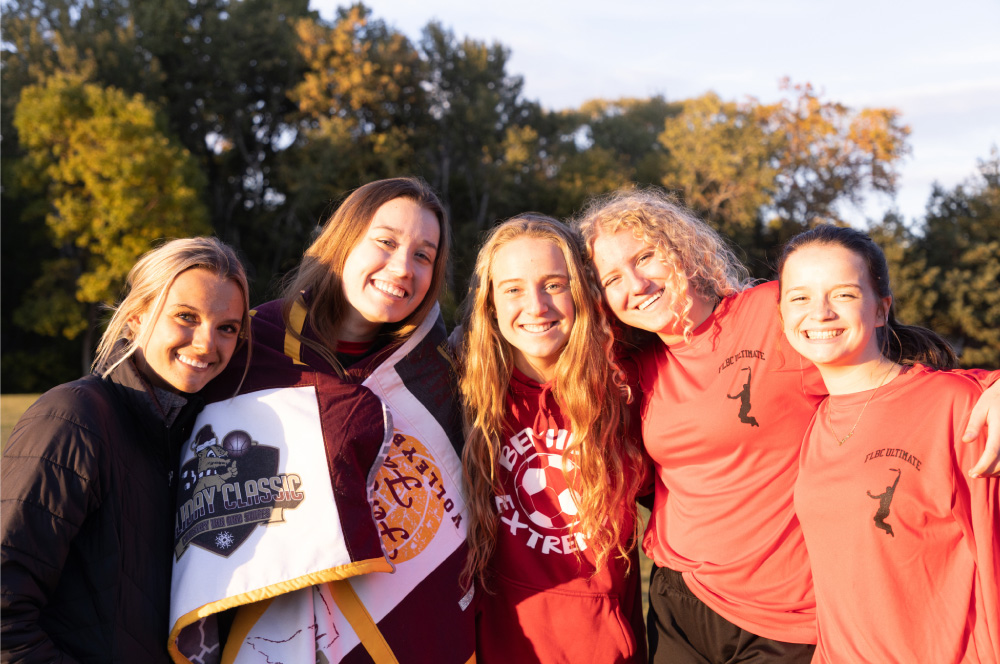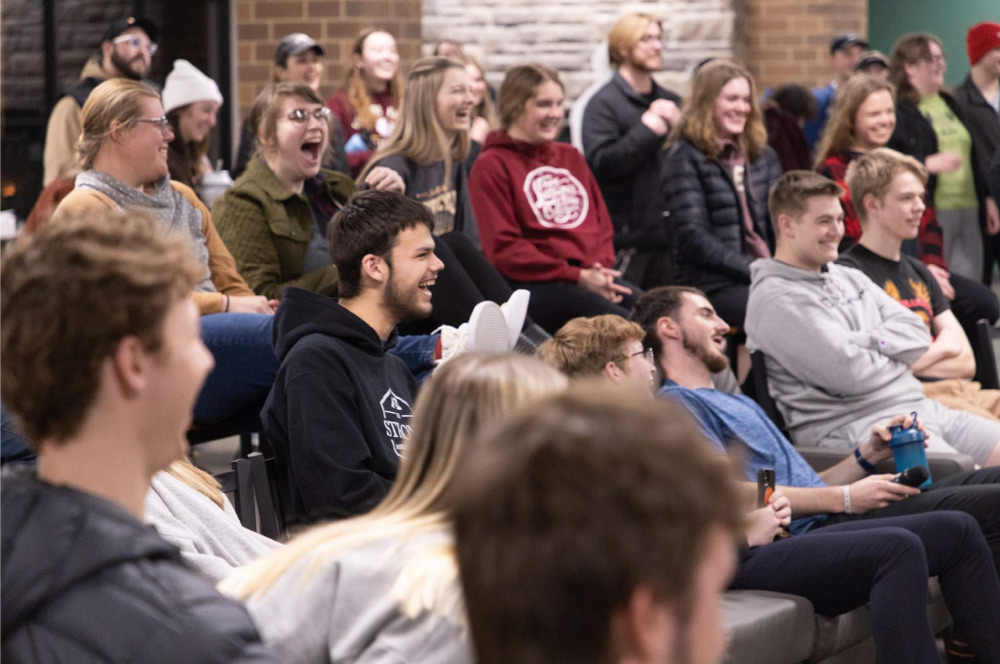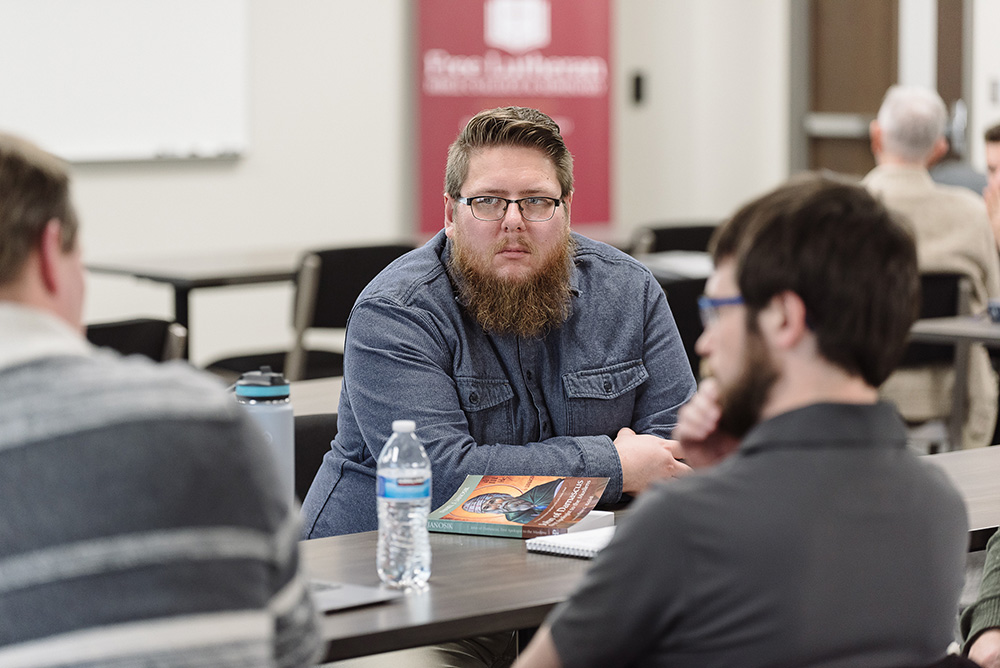Core Purpose
FREE LUTHERAN BIBLE COLLEGE was founded in 1966 to see God transform young people through the teaching of His Word. It was of primary concern among the founders of the AFLC to establish young Christians in the Word of God and help believers be equipped for life and ministry in local congregations and communities.
FREE LUTHERAN SEMINARY was founded in 1964 to train men to be servant pastors in the AFLC. The founders of the AFLC wanted pastors trained to handle the infallible and inerrant Word of God with respect and care, and to minister to their congregations with love and attentiveness, understanding the congregation as the right form of the kingdom of God on earth.
Institutional Objectives >
- Word of God
- Congregation
- Spiritual Maturity
- Great Commission Disciple Making
Core Values >
- Equipping for Future Vocation
- Integrity
- Stewardship
- Whole Life Discipleship
- Life Together
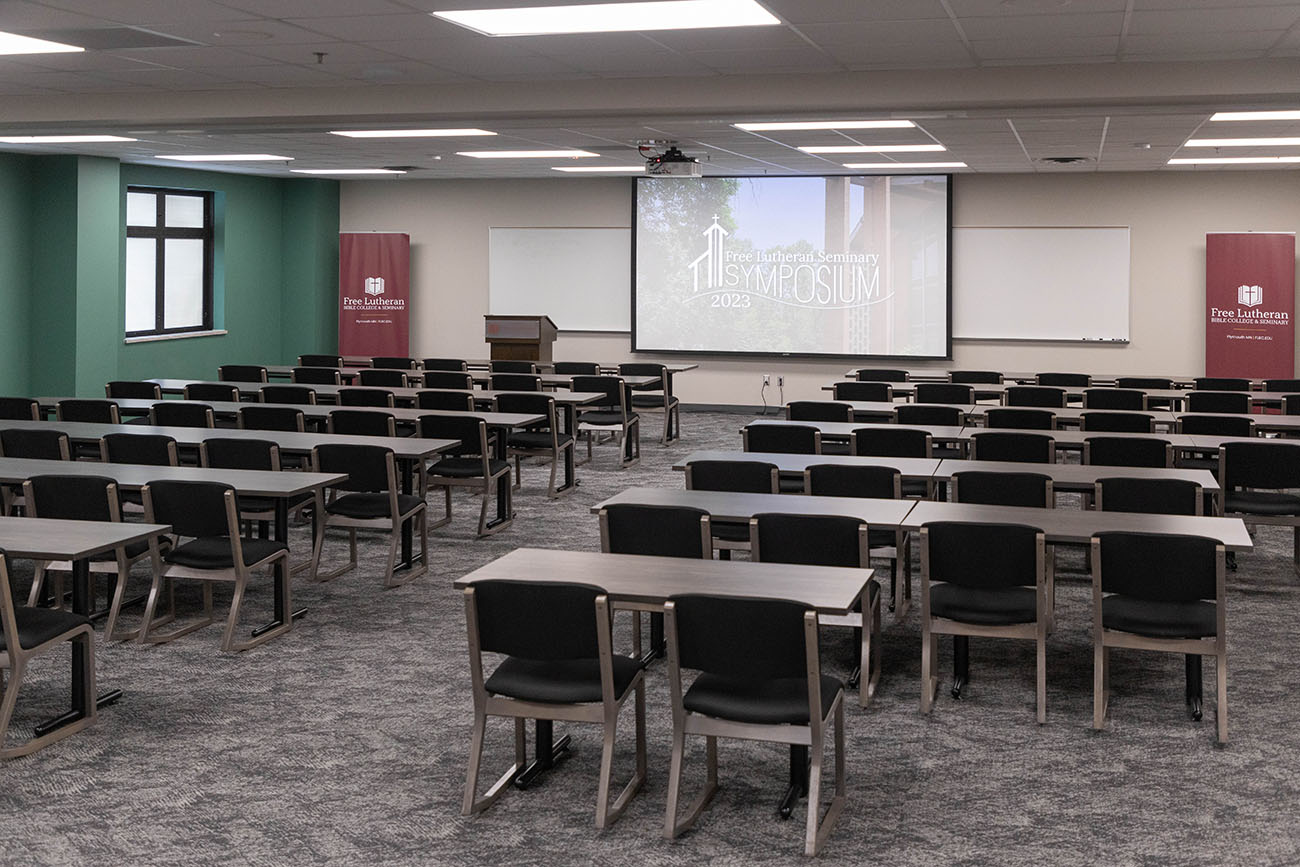
WE PROMISE THAT AT FREE LUTHERAN BIBLE COLLEGE you will learn from great teachers to love Scripture and the Author of it. They will care for you, walk with you, and introduce you to the truth of the Bible. Here you will find a warm, encouraging community of people like you who want to know and follow Jesus more deeply. You will learn in great facilities on a beautiful campus that provides places to study, think, pray, and reflect. Here you will find a sure foundation for your life and be prepared for a lifetime of service in your congregation and calling.
WE PROMISE THAT AT FREE LUTHERAN SEMINARY you will be mentored by professors who will care for you and prepare you to shepherd God’s people and preach the Word in the congregation with impact. Here you will be immersed in the Word of God and historic Lutheran doctrine and find fellowship with peers in a community that will pray for you, care for you, walk with you, and encourage you. You will leave here with ministry opportunities, little to no seminary student debt, and the confidence to fulfill God’s calling on your life and vocation.
Strategic Goals
The FLBCS strategic plan exists as three-year plan that is updated every year. This plan is a result of strategic planning, which exists at FLBCS because of regular strategic thinking. Every year FLBCS is in a new “year one” of a strategic plan, so the plan is never neglected, ignored, out of touch, or out of date.
The full Strategic Plan document can be found here.
Goal #1
By July 31, 2027 FLBCS will implement a process of risk management for the ongoing identification, assessment, and treatment of potential internal and external risks.
Several risks (for example—cultural, financial, theological) exist to the mission of FLBCS. Staff, administration, and board members will keep an eye on trends and current events so that the mission of establishing students in the Word of God for life in Jesus Christ continues to be strong.
Goal #2
By July 31, 2027, while operating with a balanced budget, FLBCS will have a positive net change for operational income for the previous three fiscal years, have established an endowment of $5M, a 3-month operating reserve, and reduced overall facility debt to under $2M. Additionally, FLBCS will have a plan in place to provide affordable Campus Housing options for students and staff.
FLBCS has operated with a balanced budget for years, and will continue to do so. The School will now operate with a positive net change in operational income, making sure that the services provided are appropriately priced to provide a margin that supports the mission of FLBCS. A three-month operating reserved is deemed to be sufficient, and a combination of endowment and debt reduction will occur due to operational gains, capital gifts, and/or estates approximating $6M over the next three years. Affordable housing is a challenge for many, and FLBCS will investigate ways of providing some such housing for students, faculty, staff, and/or administration.
Goal #3
By July 31, 2027 FLBCS will have increased enrollment in the Bible College to 160 while maintaining its theological integrity and campus culture.
Current enrollment projections, including the start of the BA in Bible and Ministry, make a full campus of nearly 160 students likely. Additional student housing could accommodate a total of 300 students, but the current funding model for FLBCS also succeeds at current enrollment levels (approximately 130 students fall 2024).
Goal #4
By July 31, 2027, FLBCS will graduate its third cohort of students from the AA and BA in Bible and Ministry programs.
The first cohort of BA students will graduate from FLBCS in the spring of 2025, and by 2027 such occurrences will become a routine occurrence. Current estimates plan on 15-20% of FLBC students to continue on to the BA program, likely influencing an increase in Seminary enrollment.
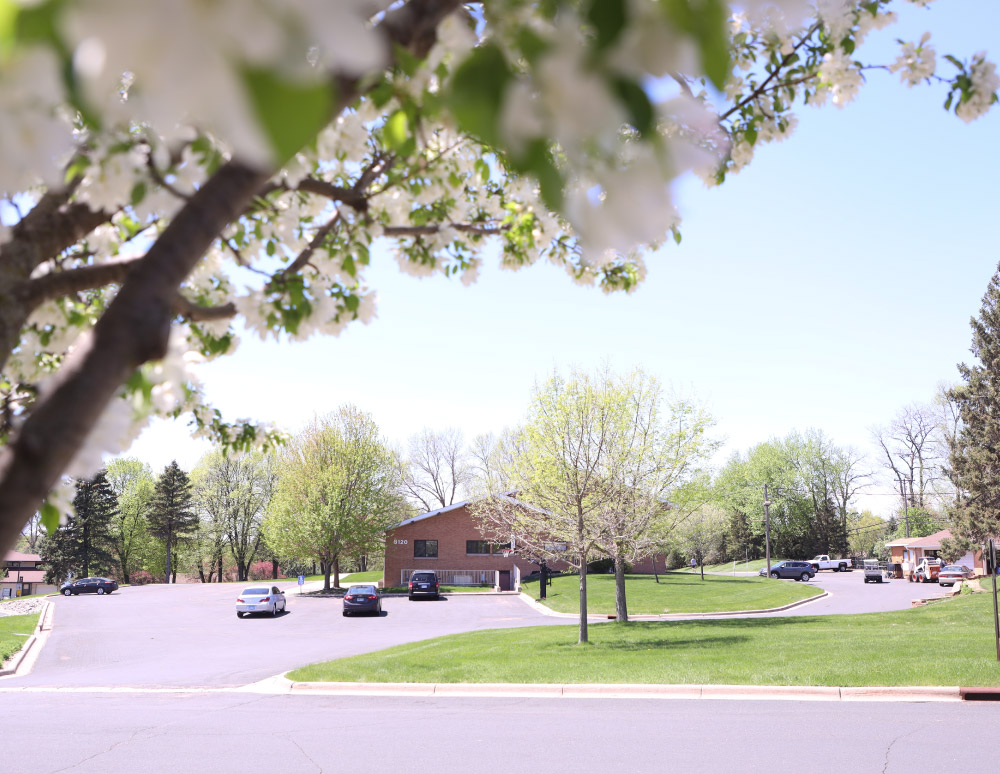
Strategic Narrative
(Where we aim to be by Spring 2027)
At graduation 2027, leaders of the Free Lutheran Bible College and Seminary share about the state of the school with parents and financial partners. They report that enrollment has surpassed 160 thanks in part to the new AA and BA in Bible and Ministry and more focused recruiting efforts. The seminary trains a student body of 25 students each year, many of whom are robustly prepared for seminary studies through the BA program.
They share the good news that for a third year in a row the school has ended the fiscal year with a positive net operational gain, and that the total of all endowments has exceeded $5 million. The mortgage on the Student Life Center has been refinanced with no more than $2 million remaining. Additionally, FLBCS is executing plans for affordable on or near campus housing for students and staff.
Other leaders from the AFLC share stories of how FLBCS students are influencing congregations across the Association. Student leaders share how the school has prepared them for life and ministry because of its unwavering theological stance and focus on its mission and core values. The President concludes the presentation by stating that as a result of its financial strength, vision, and unequivocal commitment to its values, donors are giving more, and students are
enrolling, then contributing to the life of congregations.

